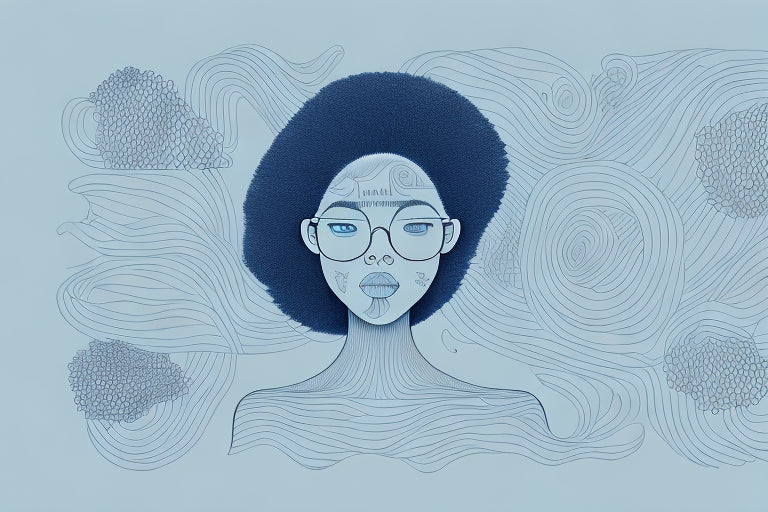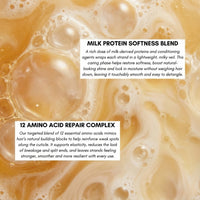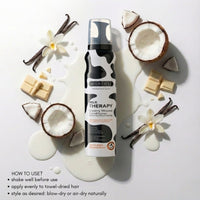Professional Hair Care for Aging Hair: Tips
Posted by MORFOSE COSMETICS

Professional Hair Care for Aging Hair: Tips
Introduction
As we age, our hair requires extra care and attention to maintain its health and vitality. In this comprehensive guide, we will explore various tips and techniques for professional hair care specifically tailored to aging hair. Whether you're dealing with thinning, graying, or brittle hair, these expert recommendations will help you rejuvenate and revitalize your locks. With the right approach and diligent hair care routine, you can achieve luscious, vibrant hair that defies age. Let's delve into the world of professional hair care for aging hair.
Understanding Aging Hair
Aging hair undergoes several changes due to various factors such as hormonal fluctuations, genetic predisposition, lifestyle choices, and environmental exposure. The most common hair-related issues associated with aging include:
1. Thinning Hair
Thinning hair is a natural part of the aging process. As we grow older, hair follicles may shrink, resulting in thinner strands. Additionally, decreased sebum production and reduced blood flow to the scalp can contribute to hair thinning.
2. Gray Hair
The graying of hair occurs when the production of melanin, the pigment responsible for hair color, decreases. Over time, the absence or reduced levels of melanin cause hair to turn gray or white.
3. Dry and Brittle Hair
Aging hair tends to become drier and more brittle due to the reduced production of natural oils by the scalp. This can lead to increased breakage, split ends, and overall lackluster appearance.
Professional Hair Care Tips for Aging Hair
To address the specific needs of aging hair, consider incorporating the following tips into your hair care routine:
1. Nourishing Shampoo and Conditioner
Start your hair care regimen with a nourishing shampoo and conditioner specifically formulated for aging hair. Look for products that contain ingredients like keratin, biotin, collagen, and antioxidants. These components can help strengthen the hair shaft, add volume, and promote overall hair health.
2. Hydration and Moisture
Aging hair often lacks moisture, so it's essential to provide adequate hydration. Use a deep conditioning treatment or hair mask once a week to replenish moisture and restore vitality to your locks. Leave-in conditioners and hair oils can also provide additional hydration and combat dryness.
3. Gentle Styling Techniques
Avoid harsh styling techniques that can cause damage to your hair. Minimize the use of heat styling tools such as curling irons and straighteners. When using these tools, always apply a heat protectant spray to minimize heat damage. Opt for hairstyles that don't pull or tug at the hair, reducing the risk of breakage.
4. Scalp Care
Maintaining a healthy scalp is crucial for optimal hair growth. Regularly exfoliate your scalp to remove dead skin cells and promote circulation. Use a scalp serum or tonic containing nourishing ingredients like vitamins and essential oils to keep your scalp in its best condition.
5. Balanced Diet
A well-balanced diet plays a significant role in maintaining healthy hair. Ensure you're consuming a variety of nutrient-rich foods, including lean proteins, fruits, vegetables, whole grains, and healthy fats. These nutrients provide essential vitamins and minerals that contribute to hair strength and vitality.
6. Protect from Environmental Damage
Protect your hair from harmful environmental factors such as UV rays, pollution, and extreme weather conditions. Wear a hat or use a leave-in conditioner with UV protection when spending extended periods in the sun. Rinse your hair after swimming in chlorinated water to prevent damage.
7. Regular Trims
Regular trims are essential for managing aging hair. Schedule haircuts every 6-8 weeks to eliminate split ends and maintain a healthy hair length. Trimming the ends also gives your hair a fresher and more vibrant appearance.
8. Avoid Overwashing
Frequent washing can strip the hair of its natural oils, leading to dryness. Reduce the frequency of shampooing to two or three times a week, allowing your hair to retain its natural oils and moisture balance.
9. Supplement with Hair Vitamins
Consider incorporating hair growth supplements or vitamins into your daily routine. Biotin, collagen, and vitamin E are known to support hair health and promote growth. Consult with a healthcare professional before starting any new supplements.
Conclusion
Aging hair requires specialized care to combat the effects of time and maintain its vitality. By following these professional hair care tips for aging hair, you can nurture and rejuvenate your locks, achieving healthy and beautiful hair that defies age. Remember to tailor your hair care routine to your specific needs and consult with a hairstylist or trichologist for personalized advice. Embrace the journey of aging gracefully while flaunting your gorgeous, well-cared-for hair.
Remember, professional hair care for aging hair is not a one-size-fits-all solution. Experiment with different products and techniques to find what works best for you. By combining proper hair care practices with a healthy lifestyle, you can enjoy vibrant and youthful-looking hair for years to come.



